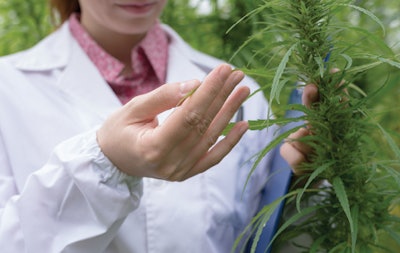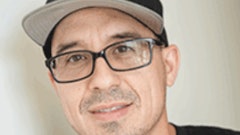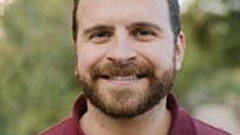
The cannabis industry, our industry, desperately needs to embrace the rigor of the scientific method if we want to usher in an era of legitimacy and mass acceptance. And look, I understand that I’m not saying anything earth-shattering or even all that original. Nearly everyone I’ve talked to in this industry has expressed some form of that sentiment to me. I guess I’m just a realist, and I think that the reality is that those of you who fought the fight and who have shed your blood, sweat and tears to bring the industry to where it is today are facing an uphill battle. Quite frankly, you’ve done the heavy lifting up to this point, and it’s no secret that the industry is headed in a more corporate direction.
With that said, however, I am also an idealist. I would love to see a scenario in which everyone can win. I believe that the best (if not only) way to make that happen is for all of us in the cannabis industry to begin to adapt our cultivation practices by subjecting them to truly scientific experiments. In doing so, I believe that we can develop a set of best practices that will scale both up and down, so that you can grow not only cannabis, but also your business.
Coming into this industry as an outsider, I suppose I have a little different take on cannabis than many of those individuals who have been here for most of their lives. My PhD is actually in Interpersonal Communication and Research Methods, but I’m also a Certified Crop Adviser with a background in commercial agriculture, specifically, helping farmers with large-scale row crop production. When I first started working in the cannabis industry, I was more than a little surprised by what I’ve come to call “The Mythos of the Master Grower.”
In retrospect, I really shouldn’t have been surprised. I’ve come to realize that farmers are all pretty much alike. It doesn’t seem to matter if you’re growing corn, cotton, cantaloupe or cannabis — you’ve been doing things a certain way, and you think it’s working for you. And that’s totally fine. The issue arises when pride gets in the way of progress. When I’m consulting with farmers in commercial row crop production, this ideology usually manifests itself in sayings like, “Well that’s how grandad did it, and that’s how dad did it, and that’s how I do it.” In cannabis, I usually see it when suggesting something to someone and then watching them almost visibly recoil with disdain that I would suggest something other than what they’re currently doing.
If you can, split up the afflicted plants and try different possible individual solutions and maybe even some combinations of solutions. That’s the only way to learn what was actually responsible for making the difference.
In my humble opinion, cannabis cultivation is an interesting sphere that is distinct from my experience in commercial agriculture, though, because its formerly illicit nature and the associated stigma stymied meaningful scientific advancement. Producers were forced to rely on word of mouth (and more recently, online forums) for best management practices. Consequently, anecdotal evidence and personal preference were privileged over the rigor of the scientific method and replication. Many self-proclaimed “experts” rose to prominence (sometimes because they were the loudest and not necessarily the best). And please know that I mean absolutely no disrespect whatsoever. One of the beautiful things about coming into this industry from the outside is that I could readily admit to and embrace my ignorance. I know that I don’t know anything, and so my ego doesn’t get in the way of my learning. And I am 100-percent convinced that I have a lot to learn from those of you with tons of experience. I am also 100-percent convinced, however, that sometimes there are practices that might even be working that don’t work the way we think they do.
As a scientist, I believe that knowing what works is only half the battle. And, to be honest, it’s less important than knowing the other half, which is why something works.
Let me illustrate this with a hypothetical example: Let’s say that your operation is cruising along and suddenly something goes wrong. Let’s say that you get a bug problem. What do you do? Change something, right? Obviously you have to change something. But here’s where you have an opportunity to do good science. Don’t turn too many knobs or dials at once. Do you introduce predatory mites and hit it with three different chemicals all at once like I’ve read on some forums? I certainly hope not. (For one thing, the chemicals might kill the predators.)
The point is that you simply must isolate the different variables. How can you know for sure if it was the predator bugs or one of the chemicals that solved your problem if you throw them all in together at once? If you can, split up the afflicted plants and try different possible individual solutions and maybe even some combinations of solutions. That’s the only way to learn what was actually responsible for making the difference.
I readily admit that there are so many people in this industry who know infinitely more than I will ever know. But the one thing that I have learned is how to learn. We do that through applying the scientific method.
As business owners, we have a decision to make: Are we going to hang on to the old practices that have gotten us to where we are? Or are we going to embrace the scientific method as a means to help usher in a new era of more successful cannabis cultivation?





















